New Scientist covers the latest developments in science and technology that will impact your world. New Scientist employs and commissions the best writers in their fields from all over the world. Our editorial team provide cutting-edge news, award-winning features and reports, written in concise and clear language that puts discoveries and advances in the context of everyday life today and in the future.
Elsewhere on New Scientist
You can handle the truth • Only the scientific method can identify the best way to tackle misinformation
New Scientist International Edition
Starship plucked out of the sky
1.5°C will bring irreversible harm • We might not be able to cool the world down again after overshooting the 1.5°C warming limit, and even if we can, much of the damage can’t be undone, finds Michael Le Page
Tesla’s Cybercab is a hollow promise of a robotaxi future • Elon Musk, CEO of Tesla, has a record of overpromising – and the firm’s Cybercab is unlikely to change that, says Chris Stokel-Walker
Weight-loss drugs may lower your desire to exercise
Hospital hit by Hurricane Milton gets water from air
Tiny ‘ruler’ can gauge distances as small as an atom
Primitive microbes found living deep inside 2-billion-year-old rock
Hack turns a smartphone into a listening device
Clever test could reveal whether gravity is subject to quantum weirdness
Individual brain neurons respond to the smell of bananas
Toothbrushes are teeming with hundreds of viruses
Do the Nobel prizes show that AI is the future of science? • Two of the three 2024 science Nobels have been won by people working in AI. What does this mean, asks Chris Stokel-Walker
US ramps up bird flu surveillance • Six more people in the US have tested positive for the H5N1 bird flu virus, highlighting the need for increased vigilance on influenza. Grace Wade reports
Duck vaccination slashes bird flu cases in France
Quantum systems may be able to defy law of entropy
Microscopic gears driven by light can power tiny machines
AIs can cooperate better than humans • People have a limit on how many others they can work with efficiently, but AI models seem able to reach consensus in far bigger groups, finds Matthew Sparkes
Life expectancy growth is slowing and few people will live to 100
Hot sauce reveals how expectation can shape our pain
Getting the facts right • There is a dirty secret in publishing: most popular science books aren’t fact-checked. Readers deserve better, says Michael Marshall
Field notes from space-time • Nearing the event horizon What does it mean to “look” at a black hole? General relativity teaches us that it is all a question of perspective – and technique, says Chanda Prescod-Weinstein
Thinking big
Manifestation on the brain • A neurosurgeon and a neuroscientist separate the “woo” from the work of manifesting in two fascinating new books, finds Kayt Sukel
A graphic take • Frenetic and funny, this book is a whistlestop tour of the climate crisis, says Madeleine Cuff
New Scientist recommends
Feeling alienated • An understated sci-fi drama traverses themes of immigration and identity as a man discovers his father may be from outer space, says Miriam Balanescu
Your letters
Cover story • Can this audacious, all-encompassing idea explain the mind, intelligence and what life is in one fell swoop, asks Elise Cutts
What is a Markov Blanket?
“It’s stripping Indigenous people of their heritage” • Archaeologist Flint Dibble tells Colin Barras why he is fighting claims that we have overlooked an advanced ancient civilisation – and how best to debunk such ideas
THE VERY WORST OF FRIENDS • Love-hate...

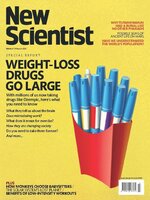 Mar 29 2025
Mar 29 2025
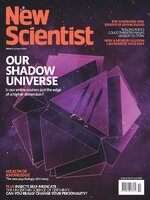 Mar 22 2025
Mar 22 2025
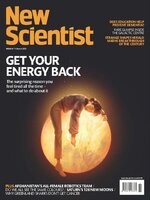 Mar 15 2025
Mar 15 2025
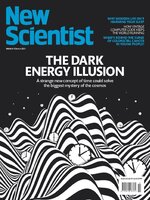 Mar 08 2025
Mar 08 2025
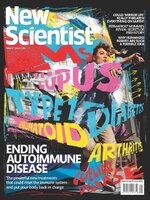 Mar 01 2025
Mar 01 2025
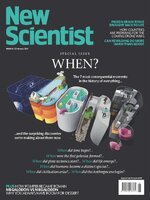 Feb 22 2025
Feb 22 2025
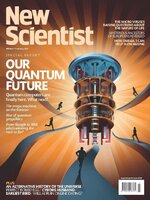 Feb 15 2025
Feb 15 2025
 Feb 08 2025
Feb 08 2025
 Feb 01 2025
Feb 01 2025
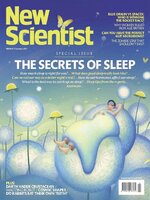 Jan 25 2025
Jan 25 2025
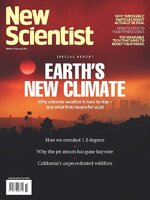 Jan 18 2025
Jan 18 2025
 Jan 11 2025
Jan 11 2025
 Jan 04 2025
Jan 04 2025
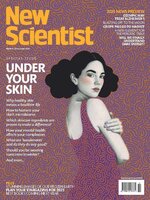 Dec 28 2024
Dec 28 2024
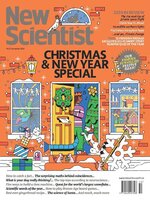 Dec 14 2024
Dec 14 2024
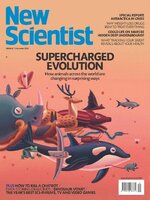 Dec 07 2024
Dec 07 2024
 Nov 30 2024
Nov 30 2024
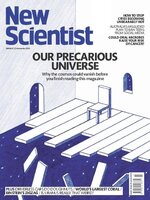 Nov 23 2024
Nov 23 2024
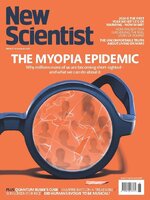 Nov 16 2024
Nov 16 2024
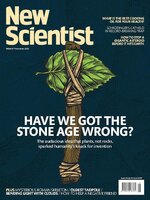 Nov 09 2024
Nov 09 2024
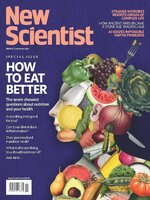 Nov 02 2024
Nov 02 2024
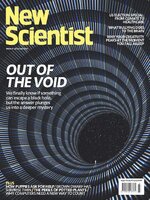 Oct 26 2024
Oct 26 2024
 Oct 19 2024
Oct 19 2024
 Oct 12 2024
Oct 12 2024